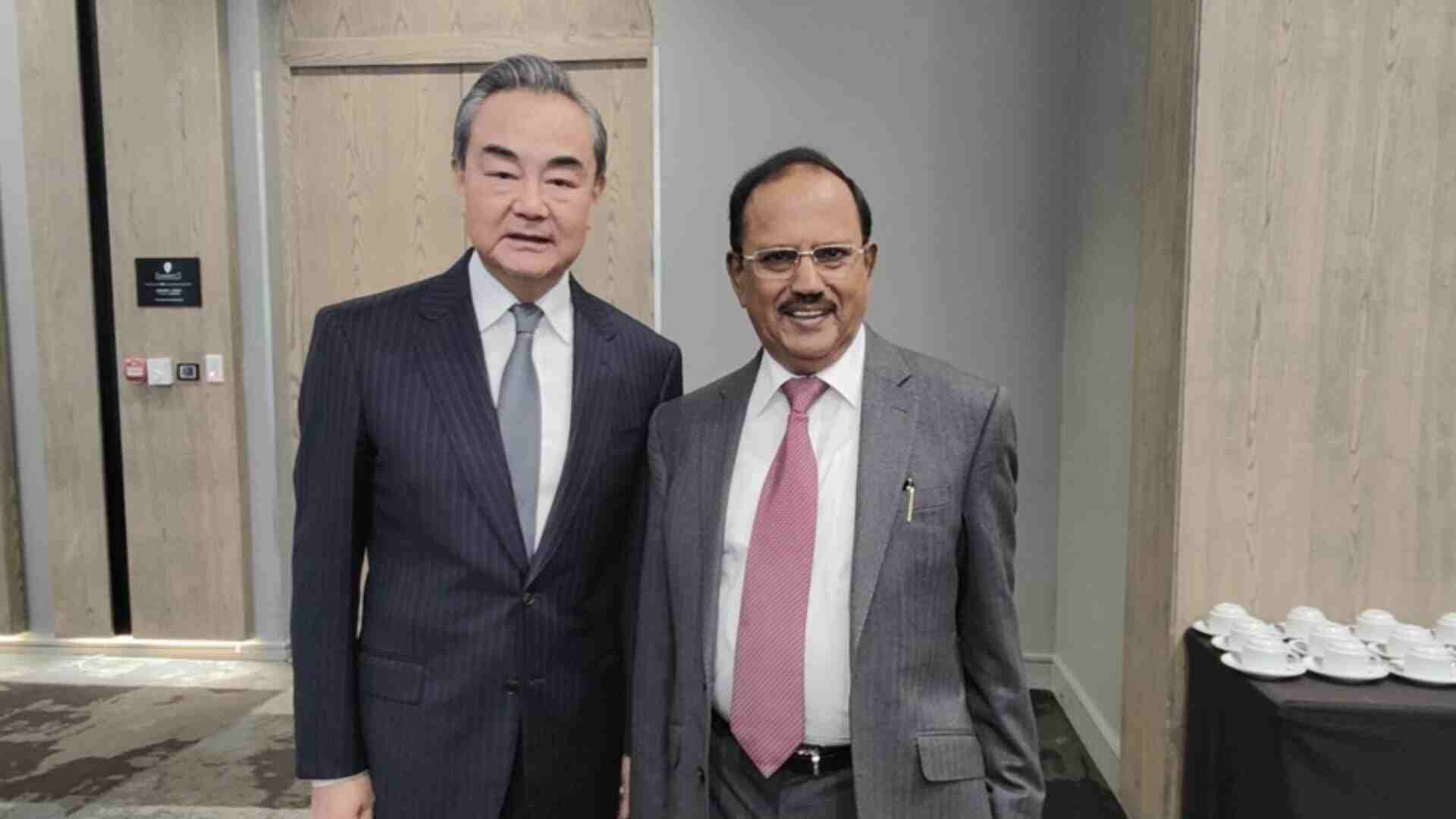
After a five-year gap, National Security Advisor Ajit Doval is likely to meet his Chinese counterpart, Wang Yi, in Beijing for the institutionalized Special Representative (SR) Dialogue. Peace and tranquility along the 3,488 km Line of Actual Control (LAC) will be the focus of discussions.
Since December 2019, the Doval-Wang meetings have mainly focused on multilateral issues rather than boundary resolution. After guidance from the meeting between Prime Minister Narendra Modi and President Xi Jinping, Doval has reached Beijing to attend the SR talks scheduled for Wednesday.
Border tensions finally saw a breakthrough during the Kazan BRICS meeting on October 24. Both leaders were able to resolve disengagement issues at Demchok and the Depsang Bulge in East Ladakh, which allowed the Indian Army and Chinese PLA to resume mandatory border patrolling in these areas after years of restriction.
It is anticipated that Doval and Wang will explore new measures for enhancing peace and stability along the LAC while working on de-escalation and troop relocation in East Ladakh. After the transgressions in May 2020, both nations had deployed troops and military hardware from the Karakoram Pass in the Western Sector to Kibuthoo in the East. Reports indicate that the PLA had posted light to medium combined armed brigades in the Eastern Sector as a precursor to Xi Jinping’s third term of presidency.
Though the Indian government is tight-lipped about the Doval-Wang meeting, the key task will be the continuation of positive momentum created after the recent disengagements from East Ladakh. Gains will be made into the shift from disengagement to the de-escalation of forces on either side.
The situation at the LAC in East Ladakh has normalized. The Indian Army and PLA have resumed their patrols at places like the Depsang Bulge and the Charding Ningling Nullah junction in Demchok. The two nations are also discussing issues of pastoral and grazing rights of the residents, which will further add to the normalization of the situation in the region.
The dialogue intends to build upon the recent gains, reinforce peace along the border, and lay the ground for the eventual resolution of the boundary issues as a whole.















